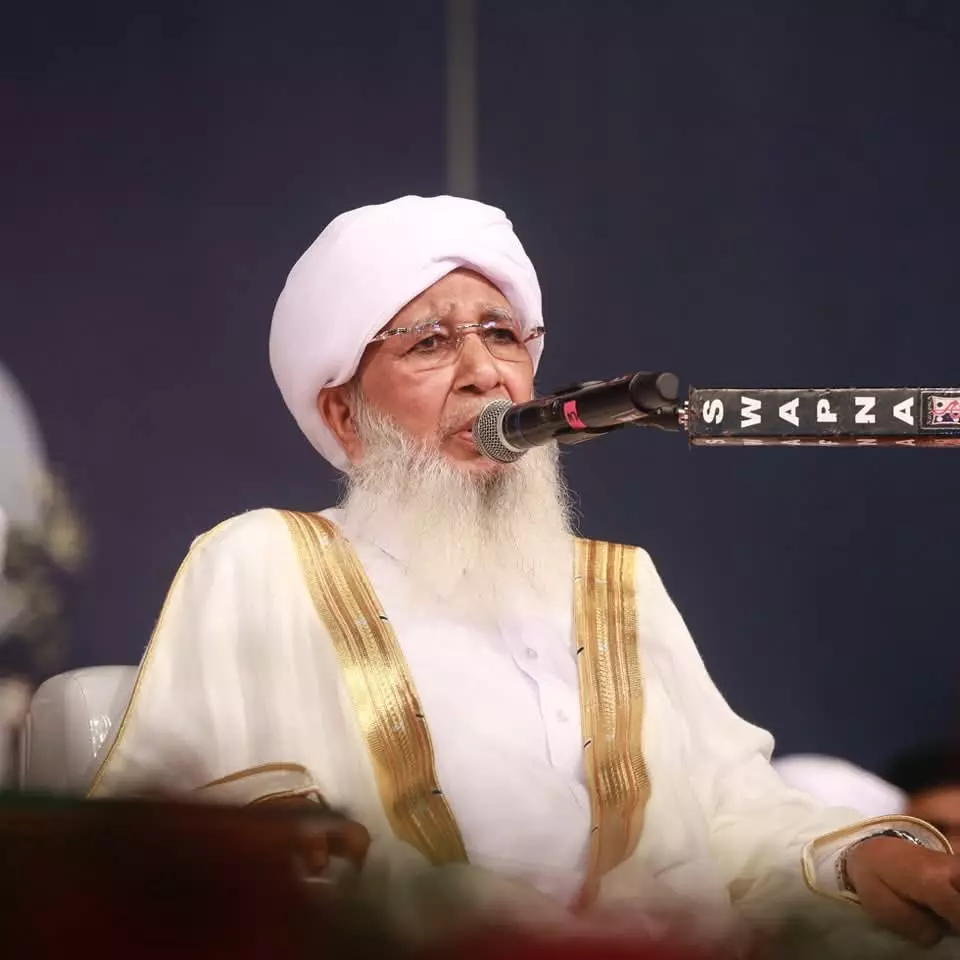
Nimisha Priya case: Who is Kanthapuram AP Aboobacker Musaliyar, the Grand Mufti?
Sheikh Abubakr Ahmad, Grand Mufti of India, played a key role in postponing Nimisha Priya's execution opening a new window for negotiations via spiritual diplomacy

When the execution of Nimisha Priya, an Indian nurse facing the death penalty in Yemen, was abruptly postponed, few expected the quiet architect behind the development to be a traditional Sunni cleric from Kerala.
Yet, it was Kanthapuram A P Aboobacker Musaliyar, also known as Sheikh Abubakr Ahmad, the Grand Mufti of India or simply A P Ustad, whose intervention, reportedly through channels of spiritual diplomacy, played a key role in opening a new window for negotiations.
In a world where religious orthodoxy often gets conflated with political rigidity, Kanthapuram’s life remains a paradox. Once a staunch theological conservative and an empathetic social actor, he occupies a unique, if uneasy, place at the intersection of religion, politics, and public life in Kerala.
Also read: Grand Mufti's intervention brings hope for Nimisha Priya
Grand Mufti and the Markaz
At the center of Kanthapuram’s influence is the Jamia Markaz (Markazul Saqafathi Sunniyya), the sprawling educational and spiritual complex he founded in Kozhikode in 1978. What began as a modest religious seminary has now grown into a major institution, educating thousands of students—both men and women—in Islamic theology, Arabic, modern sciences, and vocational training.
It is not merely an institution; it is an ecosystem of conservative Sunni thought with Kanthapuram as its ideological patriarch.
His elevation as the Grand Mufti of India in 2016 by the All India Tanzeem Ulama-e-Islam gave a formal stamp to what had already been a de facto role: an influential cleric with sway that travels far beyond Kerala’s borders, especially among south Asian Sunnis, who follow the Shafi’i school of jurisprudence.
'Arival Sunnis'
In Kerala, where Islam has long been marked by intellectual and sectarian diversity, Kanthapuram leads one of the largest factions of traditionalist Sunnis, popularly, and sometimes sarcastically, referred to as the Arival Sunnis (literally 'Sickle Sunnis'), a nickname born out of their unusual political proximity to the Communist Party of India (Marxist).
This is in stark contrast to the other Sunni group in Kerala who align with the Indian Union Muslim League and oppose the left.
While Kanthapuram opposes both political Islamism and Wahhabi/Salafi ideology, his is not a project of modernist reform. He has repeatedly affirmed patriarchal and hierarchical traditions, opposed gender equality, and maintained hard lines on theological issues. Yet, paradoxically, his movement walks in tactical step with the left in Kerala—a state where religious minorities often rely on the secular constitutionalism of the LDF and UDF for protection against majoritarian politics.
This partnership, which often baffles both liberals and hardline Islamists, has allowed Kanthapuram to expand the reach of the Markaz, influence government policy on minority education, and secure political legitimacy without embracing the language of minority victimhood.
Also read: Nimisha Priya's family offers $1 million 'blood money'
Behind-the-scenes efforts
What, then, do we make of his recent behind-the-scenes efforts in the case of Nimisha Priya?
Kanthapuram tapped into the centuries-old Sufi networks and religious institutions in Yemen, engaging tribal elders and influential clerics through appeals grounded in Islamic mercy and reconciliation. His methods, unlike diplomatic cables or legal arguments, draw on a moral authority rooted in the shared language of faith.
In that sense, Kanthapuram's intervention is both conservative and revolutionary: conservative in its loyalty to religious institutions over statecraft, but revolutionary in using that loyalty to preserve life over enforcing retribution.
Also read: Nimisha Priya, Indian nurse on death row to be executed on July 16 in Yemen
Kanthapuram’s public persona often draws ire from feminists and progressive Muslims, particularly for his views on women and his reluctance to engage in reformist interpretations of Islam. Yet, few can deny that he commands enormous grassroots credibility, especially in rural and semi-urban Kerala, where the Markaz have built religious infrastructure alongside welfare services.
Boost for religious diplomacy
To critics, he is the face of patriarchal Islam cloaked in modern institutionalism. To followers, he is Ustad—a title that means not only teacher, but moral guardian.
If the life of Nimisha Priya is ultimately spared through tribal reconciliation or a diya (blood money) settlement, it will mark a moment of unexpected moral leverage for religious diplomacy. It will also underscore a deeper truth in Indian public life: that secular praxis in India is not always driven by secular actors, and sometimes, the most conservative voices can deliver the most humane outcomes.
In Kanthapuram, A P Aboobacker Musaliyar, we see not just a cleric, but a walking humanitarian—one who, even while resisting reform within his own fold, has managed to bend systems beyond it in the direction of mercy.
And in doing so, he has reminded the nation that power, when anchored in legitimacy—however paradoxical—can save lives, not just souls.

